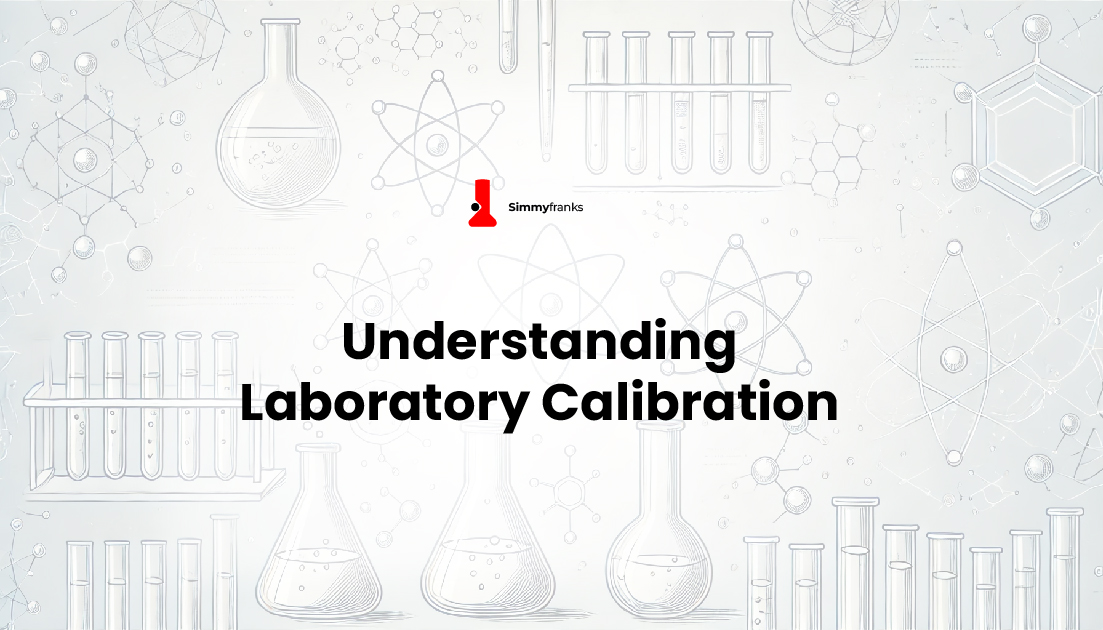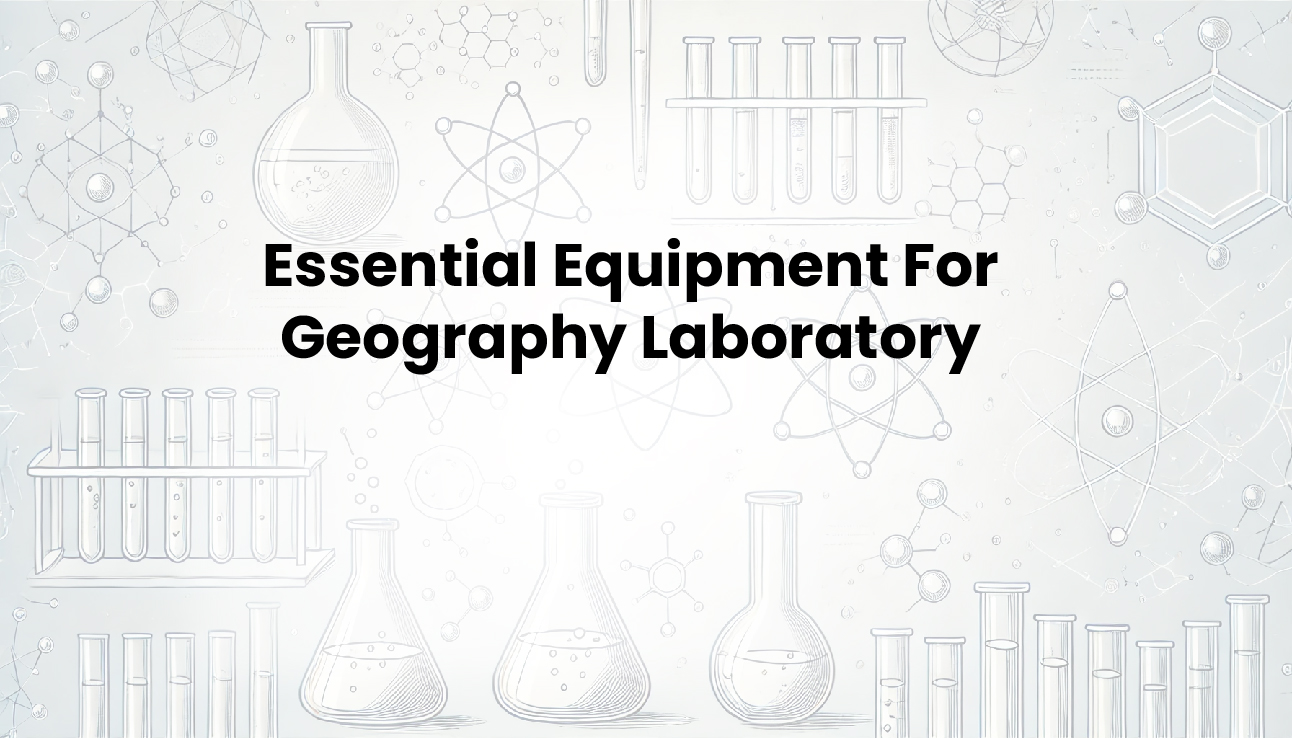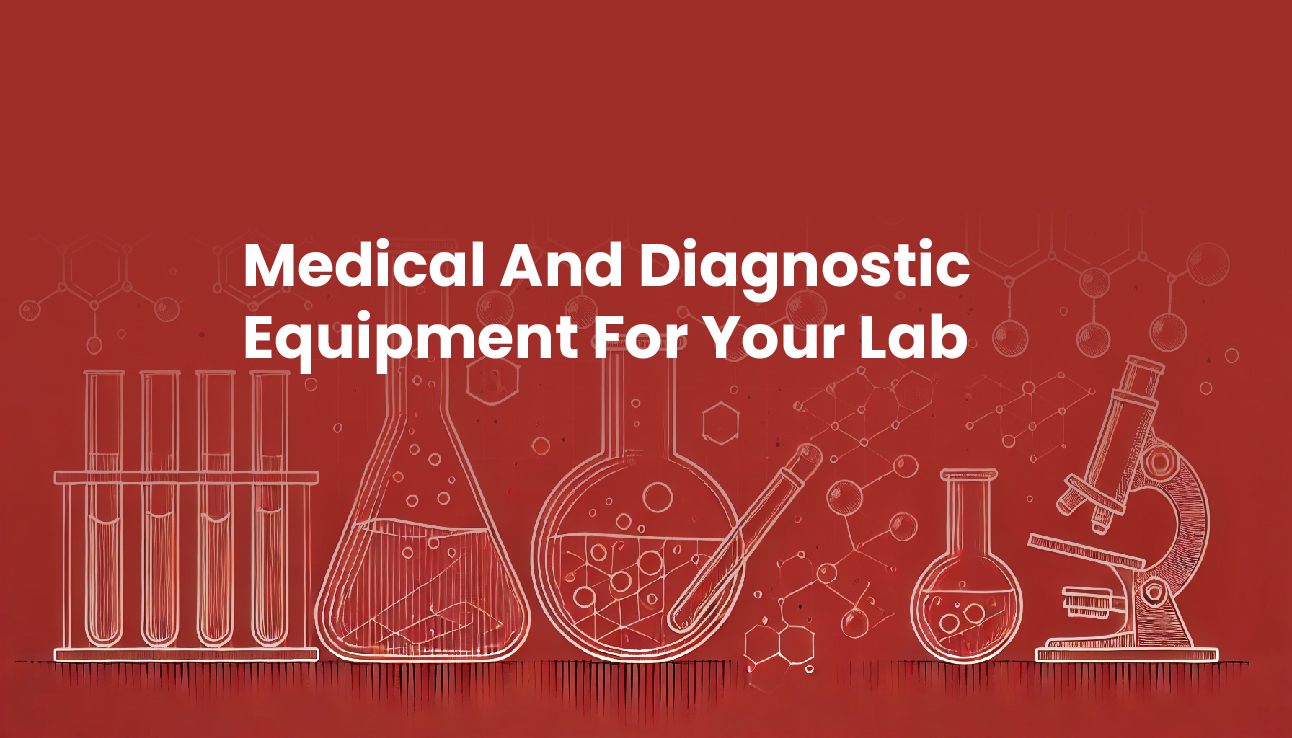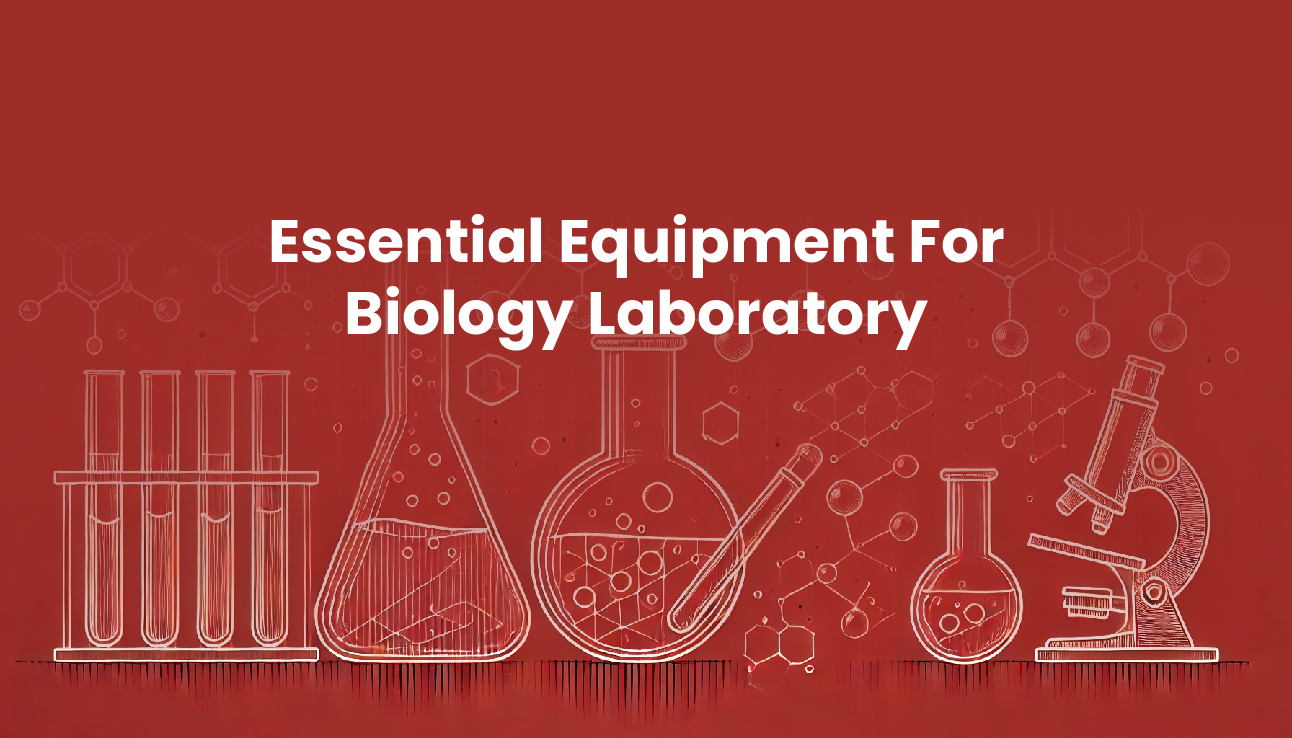Establishing a new laboratory requires careful planning and investment in the right equipment to ensure accurate and reliable results. With numerous options available, it can be overwhelming to determine which equipment is essential for a new laboratory.
In this article, we will discuss the must-have laboratory equipment essentials for a new laboratory, covering the basics, safety essentials, and specialized equipment for specific fields of research.
Essential Equipment You Need To Get Started
Looking to set up a new laboratory? Here are the basic equipment you need to get a laboratory up and running:
1. Microscope
A microscope is a laboratory equipment that makes an enlarged image of a small object, thus revealing details too small to be seen by the unaided eye.
2. Centrifuge
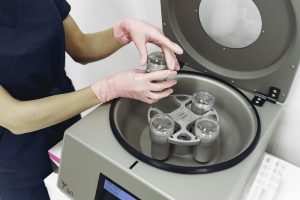
A centrifuge is a device that uses centrifugal force to subject a specimen to a specific constant force to separate them. Centrifuges are used in various laboratories to separate fluids, gasses, or liquids based on density.
3. Incubator
An incubator is a device used to grow and maintain microbiological cultures or cell cultures. The laboratory incubator maintains optimal temperature, humidity, and gaseous content of the atmosphere inside.
4. Water bath
A water bath is laboratory equipment made from a container filled with heated water. It is used to incubate samples in water at a constant temperature over some time.
5. Autoclave
An autoclave is a machine that provides a physical method of disinfection and sterilization by killing bacteria, viruses, and even spores using steam under pressure. You need an autoclave in your new laboratory for decontaminating certain biological waste and sterilizing media, instruments, and lab wares.
6. Laboratory scale and balance
These are both common laboratory equipment. While one measures mass and the other measures weight. Analytical balance is the most accurate type of balance and is typically used in research and development laboratories.
7. Hot plate
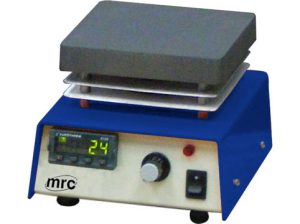
A hot plate is a laboratory device used to heat samples, solutions, and materials uniformly without the danger associated with open flames. Hot plates are frequently used in the laboratory to perform chemical reactions, to heat samples, and for numerous other activities.
8. Freezer
Laboratory freezers are refrigerated cabinets useful for storing biological specimens and volatile reagents at temperatures ranging between -40°C and 10°C.
9. Cooler
A cooler is a portable refrigeration device used in laboratory settings to keep samples, reagents, or other laboratory materials. Laptop coolers are designed to be compact and lightweight, making them ideal for use in the field or in laboratory settings where space is limited.
10. Bunsen burner
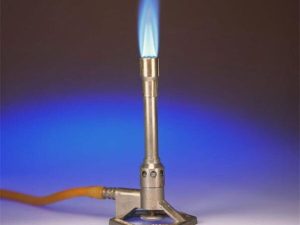
Bunsen burner is a gas burner that creates a safe, smokeless, hot, and non-luminous flame for various scientific research and experiments; it is used to heat substances, combust substances, and sterilize objects on high heat.
11. Stirrer
A laboratory stirrer is used to mix or disperse fluids in a container.
12. Retort stand
A retort stand is used to attach clamps that hold test tubes and other equipment like burettes. It is used for titration, distillation, and filtering of samples.
13. Glasswares
It would help if you had basic glassware like:
- Test tubes: also known as culture tubes or sample tubes, are a common piece of laboratory glassware consisting of a finger-like length of glass, open at the top and closed at the bottom.
- Erlenmeyer flask: also known as conical flask or titration flask is a type of laboratory flask that has a flat bottom, a conical body, and a cylindrical neck. Flasks can be used for making solutions or for holding, containing, collecting, or sometimes volumetrically measuring chemicals, samples, solutions, etc.
- Petri dish: a petri dish is a shallow-lidded dish that biologists use to hold a growth medium in which cells can be cultured.
- Beakers: beakers can be used to hold liquid or solid samples or as a container for reactions.
14. Spatula
The spatula is a rod flat spoon-like instrument in the laboratory. It is used in transferring chemicals that are in powdered form into test tubes or conical flasks. Spatula is also used to stir mixtures during experiments.
Laboratory Safety Essentials For New Labs
There are equipment and instruments you need in the laboratory for safety reasons. They include:
1. Googles
These tight-fitting eye protection completely cover the eyes and provide protection from chemical splash, impact, and dust.
2. Laboratory coat
Laboratory coat provides protection of skin and personal clothing from incidental contact and small splashes.
3. Hand gloves
Disposable nitrile gloves are appropriate for most laboratory tasks. Nitrile is more chemical and tear-resistant than latex gloves. This protects your hands from chemical splash and protects you from direct contact with contaminated surfaces.
4. Fume hood
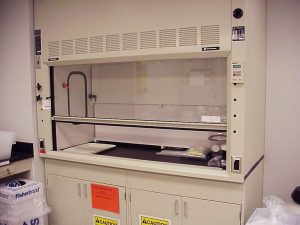
A fume hood is a ventilated enclosed workspace intended to capture, contain, and exhaust harmful or dangerous fumes, vapors, and particulate matter generated by procedures conducted within the fume hood.
5. Fire extinguisher
A fire extinguisher is a handheld active fire protection device usually filled with a dry or wet chemical used to extinguish or control small fires, often in emergencies. A fire extinguisher is a must-have laboratory equipment in case of a sudden fire emergency.
6. Fire blanket
A fire blanket is a sheet of woven fire-resistant material designed to extinguish small fires. Fire blankets are stored in pouches hanging from the walls in the laboratory.
Specialized Laboratory Equipment Essentials
Specified research fields/facilities require specialized equipment for their research. Specialized equipment includes:
1. Molecular biology equipment
The molecular biology laboratory studies fundamental processes to generate insight into molecular networks that modulate the development of different plant organs, especially about environmental interactions.
Essential equipment for molecular biology laboratory includes:
- Micropipettes: pipettes are used to measure and dispense small volumes of liquid accurately.
- Spectrophotometer: measures the amount of photons absorbed after it passes through the sample solution.
- Centrifuge
- Autoclave
- Microscope
2. Cell culture equipment
Cell culture refers to the removal of cells from an animal or plant and subsequent cultivation in an artificial environment for scientific research.
Essential equipment found in the cell culture laboratory:
- Cell culture hood
- Incubator
- Centrifuge
- Laboratory refrigerator and freezer
- Liquid nitrogen storage: when you need an even colder temperature for long-term cell storage options, use a liquid nitrogen freezer tank.
- Water bath
- Inverted microscope
- Hemocytometer: aids in counting the number of cells and helps determine cell concentration.
3. Chemistry
Chemistry is the branch of science that deals with the properties, composition, and structure of elements and compounds, how they can change, and the energy that is released or absorbed when they change.
Equipment found in the chemistry laboratory includes:
- Test tubes
- Flasks
- Beakers
- Funnels
- Crystallizers
- Watch glasses
- Measuring cylinder
- Bottles
- Pipettes
- Burettes
- Bunsen burner
- Retort stand
- Volumetric flask
4. Microbiology
Biology is the branch of science which deals with the study of life and living organisms and their interaction with non-living organisms
Microbiology is the branch of biology that deals with the study of microorganisms.
Equipment found in the biology and microbiology laboratory includes:
- Autoclave
- UV chambers
- Laminar flow hood
- Biosafety cabinet
- Incubators
- Deep refrigerators
- Centrifuges
- Microscope
- Bunsen burner
Get Your Laboratory Equipment Essentials From SimmyFrank
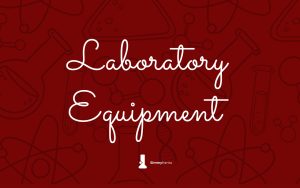
Simmyfranks is a leading supplier of laboratory essentials, offering a wide range of high-quality products to cater to the needs of various laboratories, research institutions, and educational facilities. With a commitment to providing excellent customer service and competitive pricing, we are the go-to destination for laboratory professionals seeking reliable and efficient equipment.
Why Choose Simmyfranks For Your Laboratory Equipment Essentials:
At Simmyfranks, we understand the importance of reliable and high-quality laboratory equipment for your research and testing needs. We offer an extensive range of laboratory essentials, carefully curated from trusted manufacturers to ensure exceptional performance and precision.
From microscopes and centrifuges to pipettes and laboratory furniture, our products are designed to meet the highest standards of quality and accuracy. Plus, with our competitive pricing, you can outfit your laboratory with the best equipment without breaking the bank.
Laboratory Equipment Essentials: FAQs
What are the most essential pieces of equipment for a laboratory?
The most essential pieces of equipment for a laboratory include microscopes, pipettes, centrifuges, spectrophotometers, and autoclaves.
How often should laboratory equipment be calibrated?
Laboratory equipment should be calibrated regularly, with the frequency depending on the specific equipment and usage. Typically, calibration is performed every 6-12 months.
What is the importance of proper equipment maintenance in a laboratory?
Proper equipment maintenance is crucial in a laboratory to ensure accurate results, extend equipment lifespan, and prevent contamination and safety hazards.
Can laboratory equipment be shared between different users?
Laboratory equipment can be shared between users, but proper cleaning, disinfection, and maintenance are essential to prevent cross-contamination and ensure equipment longevity.
How do I choose the right laboratory equipment for my research needs?
Choose laboratory equipment that meets your specific research requirements, considering factors such as accuracy, precision, and compatibility with other equipment and materials.
What safety precautions should be taken when using laboratory equipment?
Always follow manufacturer instructions, wear appropriate personal protective equipment (PPE), and ensure proper ventilation and electrical safety when using laboratory equipment.
Choose Simmyfranks for all your laboratory equipment essentials. Contact us or get a quote.
Editor’s Recommendations
- Setting Up A Testing Laboratory: A Comprehensive Guide
- Laboratory Equipment Supplier In Nigeria
- Advancements in Laboratory Equipment: How Stay To Ahead of the Curve
- How To Safeguard Laboratory Environments: The Role Of Proper Ventilation and Fume Hoods
- The Importance of Regular Maintenance for Laboratory Equipment


